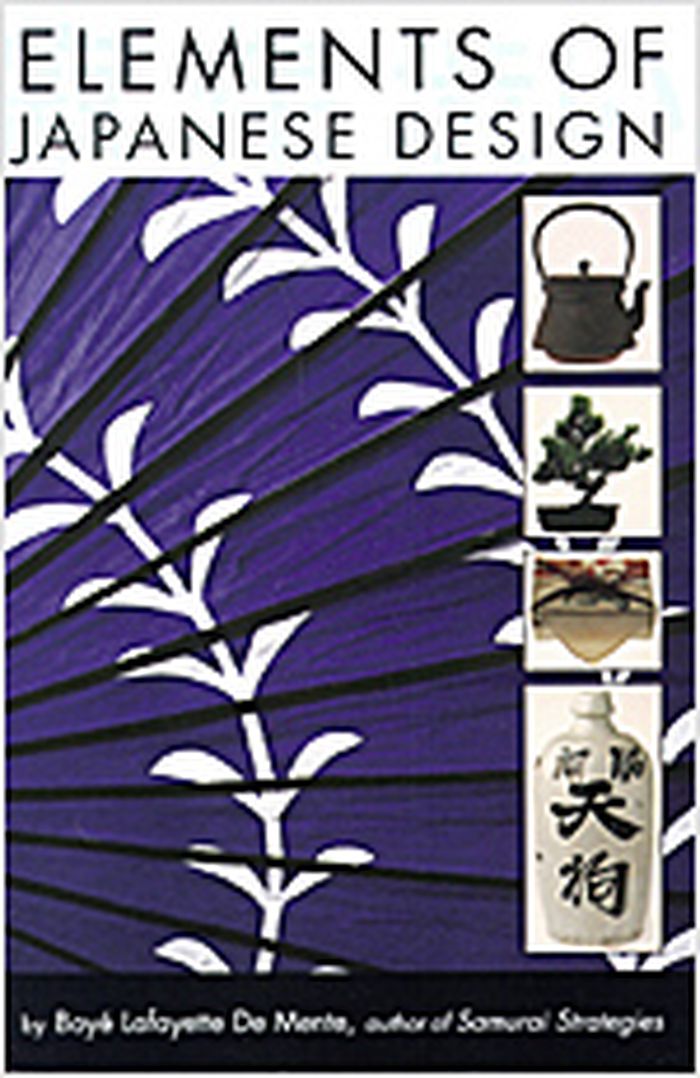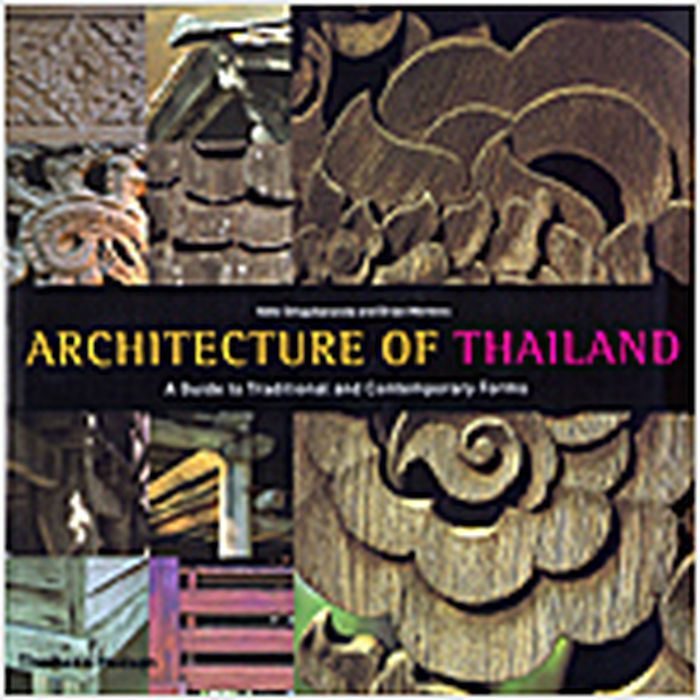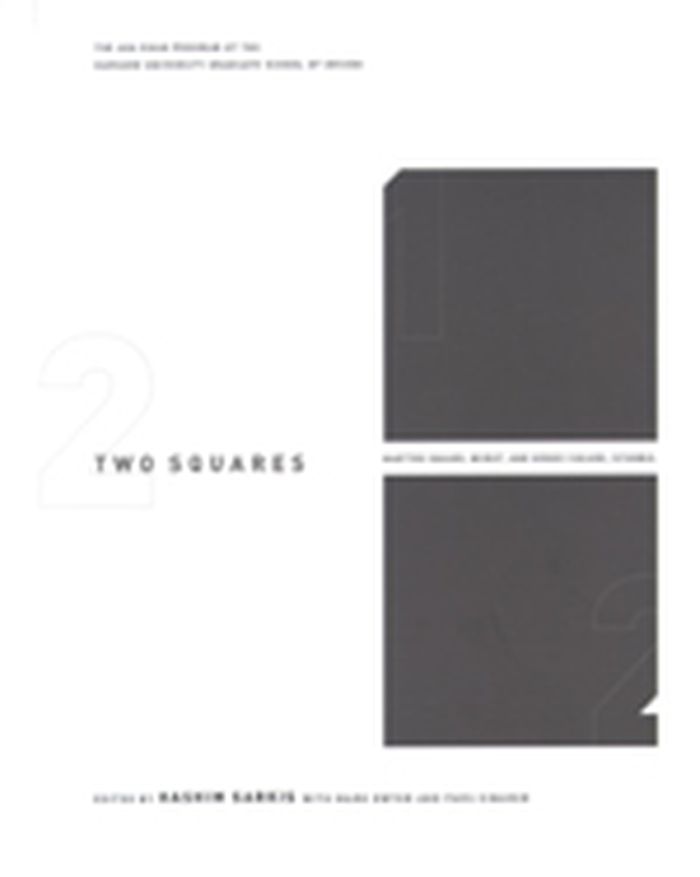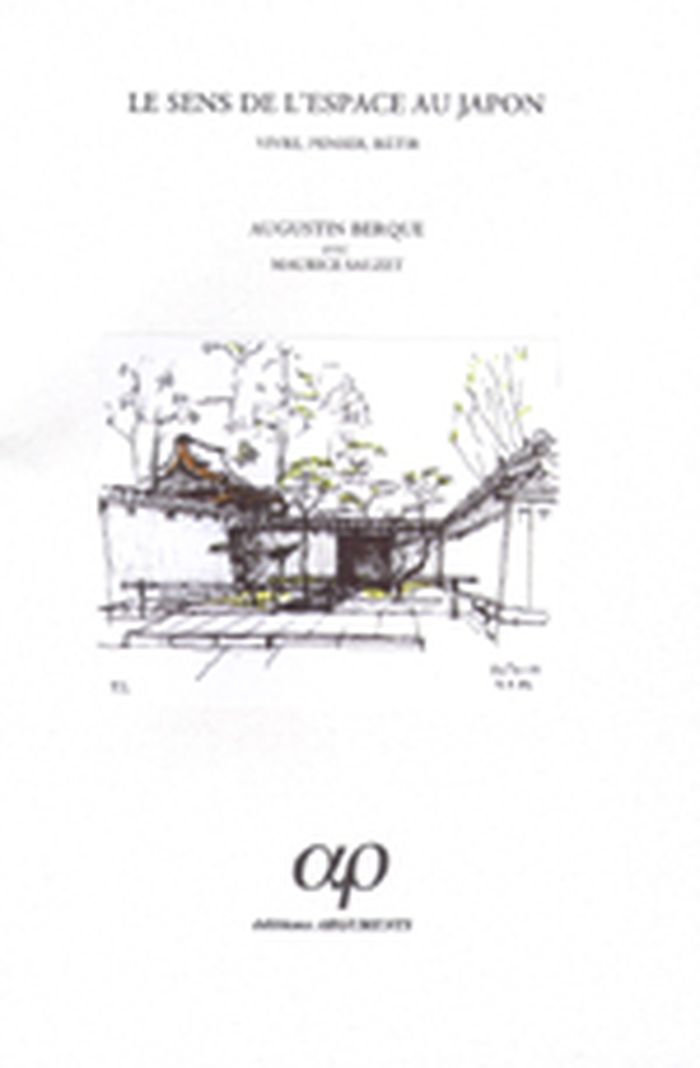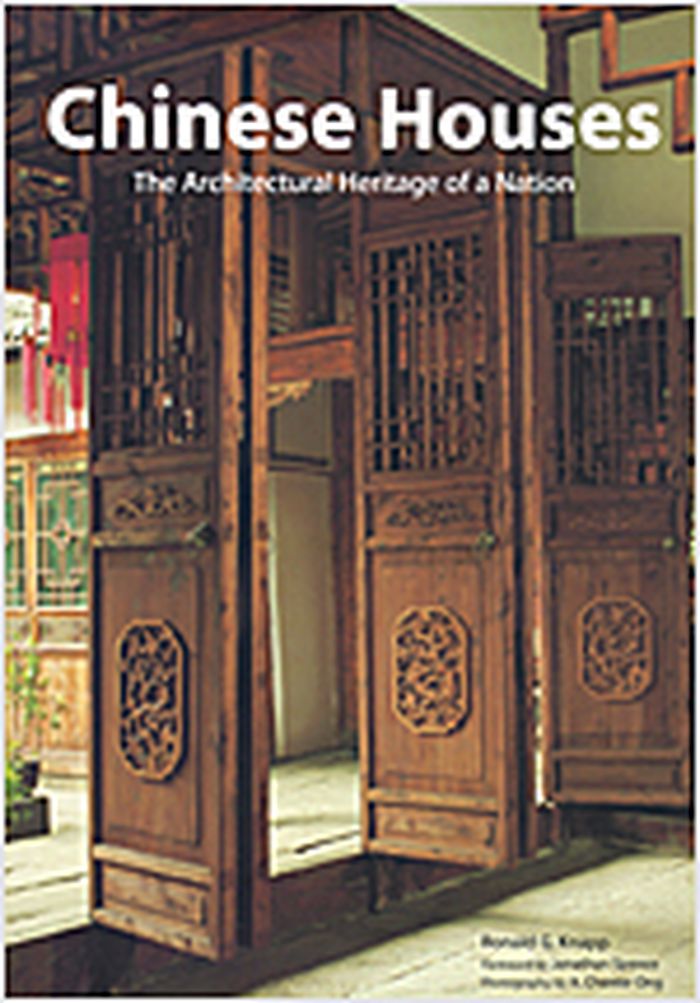Elements of Japanese design
$16.50
(available to order)
Summary:
"Elements of Japanese design" introduces 80 key concepts in Japanese design in a readable and accessible short-entry format. Including a brief explanation and examples of every aspect of Japanese design—from Wah (Harmony) to Kaizen (Continuous Improvement), from Mushin (the Empty Mind) to Mujo (Incompleteness).
History until 1900, Asia
September 2006, Tokyo, Ruthland (Vermont), Singapore
Elements of Japanese design
Actions:
Price:
$16.50
(available to order)
Summary:
"Elements of Japanese design" introduces 80 key concepts in Japanese design in a readable and accessible short-entry format. Including a brief explanation and examples of every aspect of Japanese design—from Wah (Harmony) to Kaizen (Continuous Improvement), from Mushin (the Empty Mind) to Mujo (Incompleteness).
History until 1900, Asia
books
The arts of China after 1620
$74.95
(available to order)
Summary:
The Arts of China after 1620 concludes a major three-volume survey that examines China's huge wealth of art, architecture and artefacts from prehistoric times to the present. Beginning with discussions of 'fine' art and painting and progressing to analysis of carving and sculpture, ceramics, glassware and textiles, the authors demonstrate how, in the age of the Emperors(...)
History until 1900, Asia
September 2006, New Haven / London
The arts of China after 1620
Actions:
Price:
$74.95
(available to order)
Summary:
The Arts of China after 1620 concludes a major three-volume survey that examines China's huge wealth of art, architecture and artefacts from prehistoric times to the present. Beginning with discussions of 'fine' art and painting and progressing to analysis of carving and sculpture, ceramics, glassware and textiles, the authors demonstrate how, in the age of the Emperors Kangxi, Yongzheng and Qianlong, the 'decorative' arts rose to a prominence quite unlike the western experience. Avoiding misrepresentative categorization, they single out period styles, as well as identifying repeated phases of archaism and Buddhist art, and discuss characteristic groups of jade, ivory, ceramics, glassware and textiles. They consider the importance of the imperial workshops and their role in developing craftsmen's skills and encouraging the cross-over of techniques from different disciplines and they present the compelling influence of Emperor Qianlong's aesthetic innovations. In architecture the vast plan and overwhelming authority of the imperial buildings contrasts with the restrained subtlety of domestic architecture and garden design where magnificent rocks were the principal feature, just as in landscape painting. The survey concludes by examining the development of East/West trade and the effects of commercialization on Chinese arts and crafts. This handsome, well-illustrated book provides a scholarly and illuminating resource for all students of the arts of China.
books
September 2006, New Haven / London
History until 1900, Asia
books
Le Japon d'Edo
$26.95
(available to order)
Summary:
Geisha et samurai : une image traditionnelle du Japon d'Edo. Ce guide présente les transformations qui caractérisent la société nippone entre le XVIIe et le XIXe siècle : la naissance d'une vie urbaine, l'ouverture sur le monde, les innovations dans les sciences, les techniques et les arts... L'histoire d'un bouillonnement culturel, ou comment une période dite féodale(...)
Le Japon d'Edo
Actions:
Price:
$26.95
(available to order)
Summary:
Geisha et samurai : une image traditionnelle du Japon d'Edo. Ce guide présente les transformations qui caractérisent la société nippone entre le XVIIe et le XIXe siècle : la naissance d'une vie urbaine, l'ouverture sur le monde, les innovations dans les sciences, les techniques et les arts... L'histoire d'un bouillonnement culturel, ou comment une période dite féodale s'avéra le creuset du Japon moderne.
books
January 2006, Paris
History until 1900, Asia
$84.00
(available to order)
Summary:
The book opens with a history of the country and its many cultural influences. An overview of Thai architecture in its context is followed by a look at its basic elements in their variety and structural detail. All types of structures are featured, from Thai houses and rice barns to elaborate temples and breathtaking palaces. The different materials used to achieve the(...)
May 2006, London
Architecture of Thailand : a guide to traditional and contemporary forms
Actions:
Price:
$84.00
(available to order)
Summary:
The book opens with a history of the country and its many cultural influences. An overview of Thai architecture in its context is followed by a look at its basic elements in their variety and structural detail. All types of structures are featured, from Thai houses and rice barns to elaborate temples and breathtaking palaces. The different materials used to achieve the distinctive Thai style are also discussed. The book also examines the hybrid forms that reflect the confluence of Thai and Western or other Asian styles. It ends with a look at contemporary Thai architecture and how traditional architectural practices have been adapted to suit modern needs.
$30.00
(available to order)
Summary:
Sublime landscapes, tranquil urban scenes, frolicking children; who would associate these images with Palestine? All too often the Western media show the country’s gloomy side, and Palestinians as aggressors. It is this that makes identifying with them virtually impossible. If we are to relate to the Palestinians other images are needed, images seen from a cultural and(...)
Subjective atlas of Palestine
Actions:
Price:
$30.00
(available to order)
Summary:
Sublime landscapes, tranquil urban scenes, frolicking children; who would associate these images with Palestine? All too often the Western media show the country’s gloomy side, and Palestinians as aggressors. It is this that makes identifying with them virtually impossible. If we are to relate to the Palestinians other images are needed, images seen from a cultural and more human vantage point. The Dutch designer Annelys de Vet invited Palestinian artists, photographers and designers to map their country as they see it. Given their closeness to the subject, this has resulted in unconventional, very human impressions of the landscape and the architecture, the cuisine, the music and the poetry of thought and expression. The drawings, photographs, maps and narratives made for this atlas reveal individual life experiences, from preparing chickpeas to a manual on water pipe smoking, from historic dress to modern music. Pages containing humorous and caustic newspaper cartoons and invented Palestinian currency followed by colourful cultural diaries and moving letters from prisoners. All in all, the contributions give an entirely different angle on a nation in occupied territory. In this subjective atlas it is the Palestinians themselves who show the disarming reverse side of the black-and-white image generally resorted to by the media.
History until 1900, Asia
$69.95
(available to order)
Summary:
C'est un voyage de la Chine à la méditerranée, sur les routes de la soie, du thé, du jade, des épices, de la laine, de l'or et des chevaux, aux confins de la Chine, de l'Asie Centrale et de l'Inde. Sur ces routes, traversant steppes, montagnes et déserts, des caravanes de chameaux et de yacks cheminèrent durant des siècles bijoux, porcelaine, thé et épices jusqu'aux(...)
Nomades et caravanes d'orient sure les routes de la soie
Actions:
Price:
$69.95
(available to order)
Summary:
C'est un voyage de la Chine à la méditerranée, sur les routes de la soie, du thé, du jade, des épices, de la laine, de l'or et des chevaux, aux confins de la Chine, de l'Asie Centrale et de l'Inde. Sur ces routes, traversant steppes, montagnes et déserts, des caravanes de chameaux et de yacks cheminèrent durant des siècles bijoux, porcelaine, thé et épices jusqu'aux fabuleux bazars d'Asie centrale comme ceux de Kachgar, de Boukhara et de Samarkand. C'est aussi une plongée dans l'histoire et les cultures, à travers les religions, les modes de vie, les évolutions des pays d'Asie Centrale, sur les traces des grands explorateurs, aventuriers mandatés par des souverains lointains ou des scientifiques et archéologues passionnés. C'est, enfin et surtout, une rencontre avec les populations d'Asie Centrale, bergers tadjiks, nomades Mongols, Kazakhs, Kirghizes, qui vivent sous la yourte avec leurs troupeaux de yacks, de chèvres et de moutons, dans un cadre majestueux : montagnes enneigées de l'Altaï, du Pamir et du Karakorum, steppes immenses et déserts gigantesques.
History until 1900, Asia
AD : Made in India
$47.99
(available to order)
Summary:
Architecture is never an isolated production. It is deeply embedded in the fabric of any social and cultural dynamic, even though new impetuses are often made and established through architecture. This is particularly true of the exuberant social and cultural shift that India is undergoing. A multi-disciplinary approach is crucial in order to unravel the scope of the(...)
AD : Made in India
Actions:
Price:
$47.99
(available to order)
Summary:
Architecture is never an isolated production. It is deeply embedded in the fabric of any social and cultural dynamic, even though new impetuses are often made and established through architecture. This is particularly true of the exuberant social and cultural shift that India is undergoing. A multi-disciplinary approach is crucial in order to unravel the scope of the phenomenon and its manifestations. The title features Sunil Khilnan's meditation on what constitutes the idea of modern India, Prem Chandavarkar's exciting account of the emergence of a new generation of architects in Bangalore and Ravi Sundarum's description of the visceral city. It also includes project sections that portray the divergent and innovative face of Indian architecture from Bombay to Bangalore, which include sophisticated urban schemes alongside handmade self-built buildings in rural areas.
History until 1900, Asia
Two squares
$20.95
(available to order)
Summary:
Through a series of essays by urban historians and designers, Two Squares examines the changing role of public space in the cities of Beirut and Istanbul as they undergo major urban redevelopment. The study of Beirut looks at the redesign of Martyrs' Square, the city's primary public space, in the aftermath of the civil war and the ongoing reconstruction efforts to(...)
Two squares
Actions:
Price:
$20.95
(available to order)
Summary:
Through a series of essays by urban historians and designers, Two Squares examines the changing role of public space in the cities of Beirut and Istanbul as they undergo major urban redevelopment. The study of Beirut looks at the redesign of Martyrs' Square, the city's primary public space, in the aftermath of the civil war and the ongoing reconstruction efforts to rebuild the center. In Istanbul, the focus is on Sirkeci Square, one of the main intermodal hubs in the historic peninsula, as it readies itself to host a new station for the first under-Bosphorus train tunnel. The two urban transformations are taken as opportunities to examine the nature of public space in the 21st-century city, the history and evolution of public life in Beirut and Istanbul, and the possibilities of using these vital transportation nodes as opportunities for new landscape, urban, and architectural design strategies. The book also includes a series of hypothetical design projects for these two squares.
History until 1900, Asia
$58.95
(available to order)
Summary:
Le sens de l'espace au japon, c'est le déploiement du monde japonais, de la terre d'un certain archipel à la manière dont le moi s'y définit dans son rapport avec les choses et avec autrui. C'est l'organisation des parcours dans un jardin-promenade, l'agencement des pièces dans l'ancien palais du shôgun à Edo, mais aussi certains principes managériaux des grandes(...)
History until 1900, Asia
May 2004, Paris
Le sens de l'espace au Japon : vivre, penser, bâtir
Actions:
Price:
$58.95
(available to order)
Summary:
Le sens de l'espace au japon, c'est le déploiement du monde japonais, de la terre d'un certain archipel à la manière dont le moi s'y définit dans son rapport avec les choses et avec autrui. C'est l'organisation des parcours dans un jardin-promenade, l'agencement des pièces dans l'ancien palais du shôgun à Edo, mais aussi certains principes managériaux des grandes entreprises, l'apparente absence du sujet dans certains poèmes, les repères situationnels de la morale ordinaire, et jusqu'à la remise en cause au XXe siècle, par la " logique du lieu " nishidienne, du principe d'identité qui fonda l'inférence rationnelle chez Aristote. En effet, chaque société crée son espace dans un sens qui lui est propre, et qu'analogiquement elle déploie dans tous les domaines de son existence ; mais en outre, la spatialité japonaise a ceci de particulier qu'elle a construit un paradigme existentiel : un paradigme de la vie même, à l'opposé du mécanicisme de la modernité occidentale. On en tire ici les leçons pour une architecture naturelle, en prise concrète avec les sens de notre corps dans le paysage.
History until 1900, Asia
$81.95
(available to order)
Summary:
This book focuses on 20 well-preserved traditional homes, presenting examples from a range of rural and metropolitan areas throughout China. The photographs of each are accompanied by background information and historical content. An introductory essay examines the different types of Chinese homes and provides an overview of the regional variety of Chinese dwelling(...)
History until 1900, Asia
January 2006, North Clarendon / Singapore
Chinese houses : the architectural heritage of a nation
Actions:
Price:
$81.95
(available to order)
Summary:
This book focuses on 20 well-preserved traditional homes, presenting examples from a range of rural and metropolitan areas throughout China. The photographs of each are accompanied by background information and historical content. An introductory essay examines the different types of Chinese homes and provides an overview of the regional variety of Chinese dwelling forms. Photography by A. Chester Ong.
History until 1900, Asia
